There has to be a simpler way
Students should not need 504 plans to get the accommodations they need to be safe, successful
Because teachers are only legally obligated to allow students to have accommodations if they have a 504 plan, those who do not apply for a plan have no way of ensuring that they receive the classroom accommodations they may need.
October 17, 2019
Imagine being incredibly passionate about your education, but never being able to concentrate on just one thing in class or complete your homework before the due date. You know you deserve more time, but you can’t ask for it.
Now imagine taking a test and all of a sudden your hands start shaking and you feel nauseous. You know you should eat but your teacher doesn’t allow food in the classroom.
Now imagine taking notes and having to rewrite the same letter over and over again until it is perfect. You know you would retain more of the information by typing your notes on a computer, but your teacher doesn’t trust you.
That is how school is for so many students.
Section 504 of the Rehabilitation Act of 1973 was the first legislation in the United States created to protect the rights of individuals with disabilities. It states that in federally funded programs, it is against the law to discriminate against people with disabilities or deny them opportunities given to other people. For AISD students, that means that anyone with a disability can attend free public school just like anyone else, and, with a 504 plan, receive accommodations that help them perform best in school. These accommodations could range from extended time for homework and tests to behavioral management.
But, for students who have simple requests, like taking notes on a computer or preferential seating, the number of hoops that they and their families have to jump through is slightly outrageous.
Don’t get me wrong. I think it’s great that students with disabilities are given the same level of empathy and respect as anyone else, but those without an 504 plan often run into trouble with teachers when they request accommodations. I would know.
A little over a year ago, I was diagnosed with type one diabetes. Some of the accommodations I need are being able to eat in class when my blood sugar is low and being able to use my phone during class to check blood sugar readings. I am still in the process of getting a 504 plan, however, so it has been challenging at times to get my teachers on board. The strange thing is, they know about my condition. The school nurse always alerts teachers when they have someone in their class with a mental or medical condition, 504 plan or not. Without a 504 plan, however, not even the very visible filament in my arm and insulin pens in my backpack are enough to guarantee that I will receive these simple, non-disruptive accommodations.
I do believe that 504 plans can be very beneficial. Plans like these can be obtained in elementary school and follow you all the way through college. I also believe that there should be some sort of screening process to get one because otherwise students could take advantage of the system for the wrong reasons and teachers would be forced to abide by them. But, for students who have simple requests, like taking notes on a computer or preferential seating, the number of hoops that they and their families have to jump through is slightly outrageous.
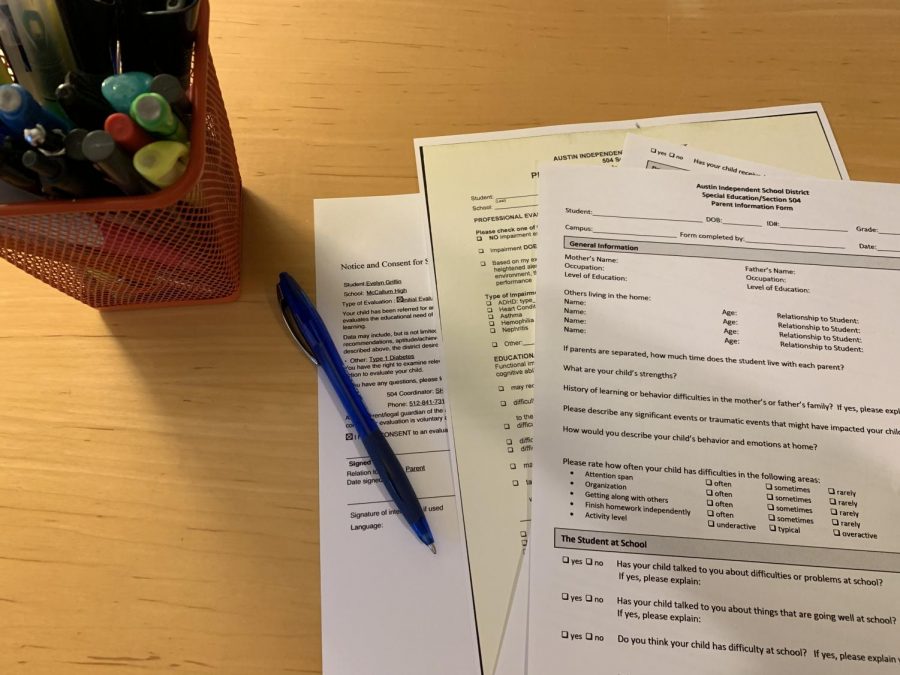
The paperwork that anyone applying for a 504 plan has to fill out and submit digitally to a counselor. Although there needs to be a system in place to obtain a 504 plan, the current one is daunting to many students.
First, you have to reach out to a counselor about getting a 504 plan on your own. Then, they send you forms to fill out. One of these forms in particular, the parent information form, does not even apply to many of the people applying for a plan. For me especially, the majority of the questions on the form are completely irrelevant to my condition. For instance, one of the questions asks my parents to rate my ability to speak in complete sentences and get along with others. Once all of the forms are complete, applicants have to meet with a counselor to get the plan approved. They must be ready to propose a plan with requests specific to them but are not given any resources to help them.
Another thing to consider is the attentiveness of the parents. Some students don’t have parents who can really help them with their condition. This could be because they don’t understand it or take it seriously, or they can’t give them access to a good doctor, or therapist. What are those students supposed to do? My parents were more than willing to put in the work, but not everyone’s parents are willing and able to do that.
No one should feel that they have to compromise their ability to learn to avoid paperwork. There has to be a less labyrinthine way to address a student’s classroom needs.
Even with parents that can help, some students still don’t think that getting a 504 plan is worth their time because of the mildness of their condition. These students end up doing things the same way as everyone else, even though it impedes their learning. No one should feel that they have to compromise their ability to learn to avoid paperwork. There has to be a less labyrinthine way to address a student’s classroom needs.
Even though the application process is to blame, administrators and teachers have to trust their students to know what their needs are. 504 plans are an outdated and very often unnecessary way to reassure them, but if a student doesn’t think his or her accommodations justify going through the whole process, then their demands should still be respected. While many teachers make an effort to do this, there should still be requirements in place.
In a study made public in 2017, the National Center for Learning Disabilities discovered that children with learning disabilities are three times more likely to drop out of school than those without those challenges. I for one don’t want to learn in a place that doesn’t do their very best to combat those odds. We can do better.




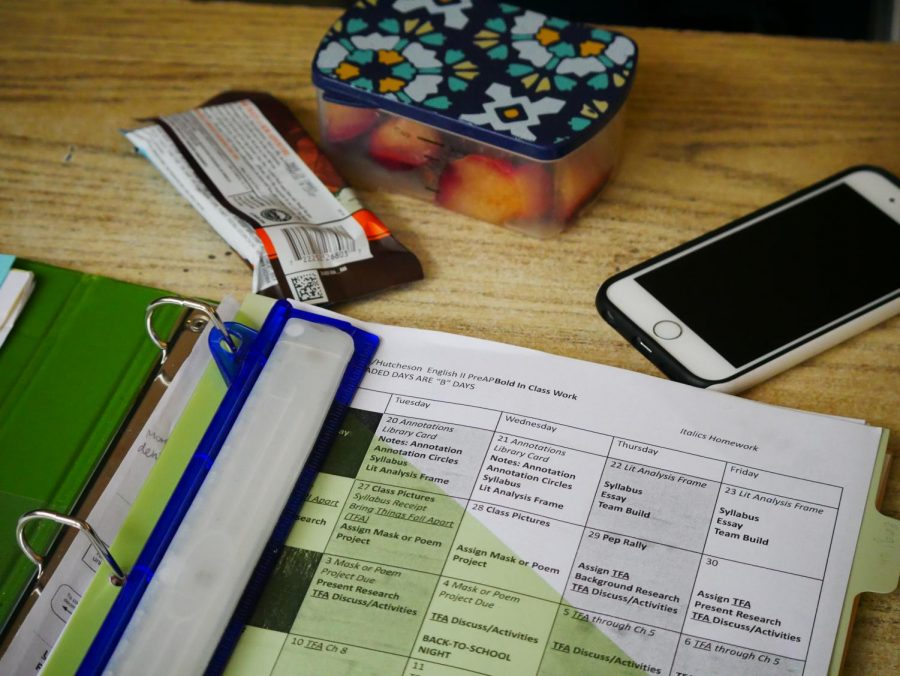

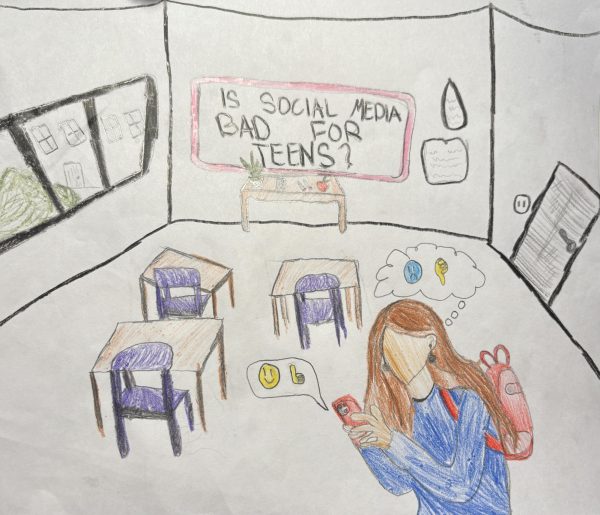

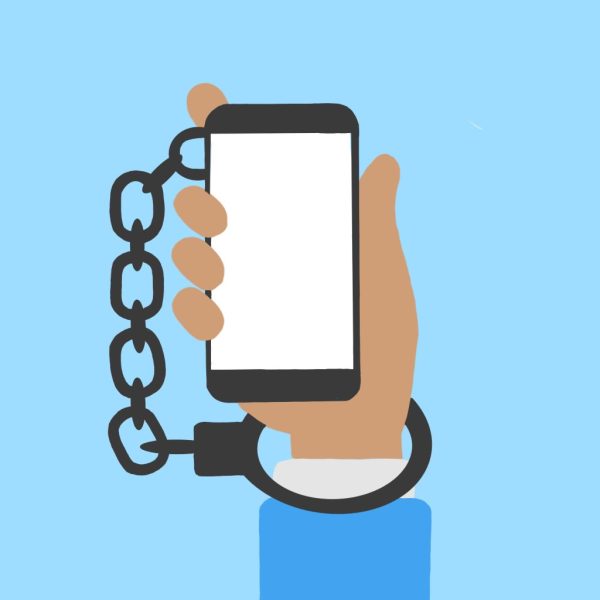




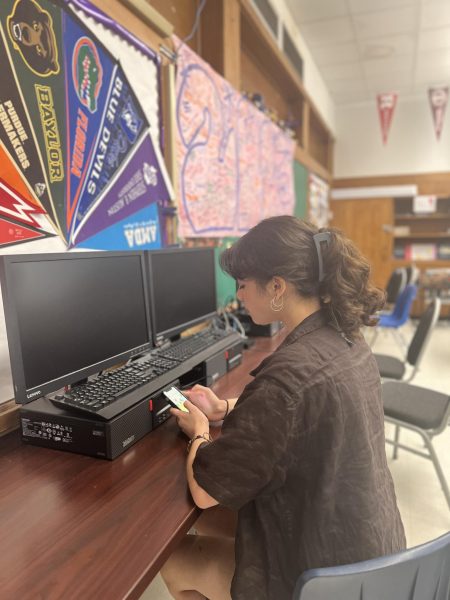
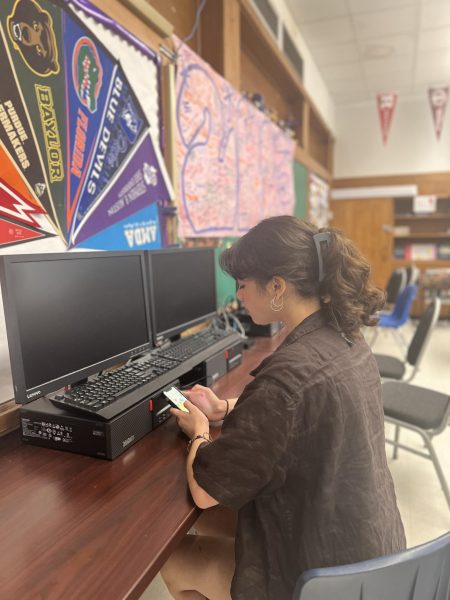
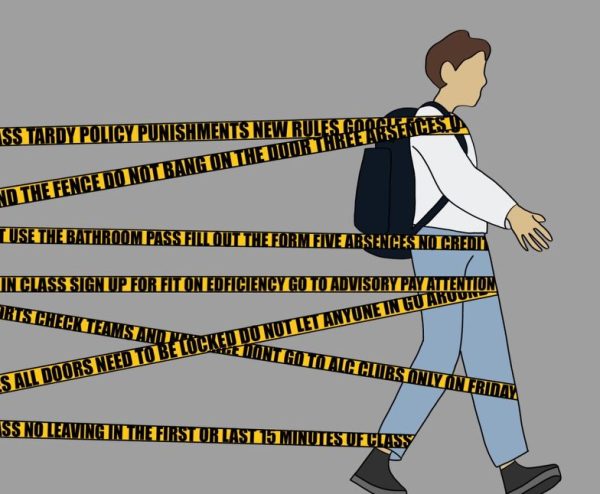

Kathy Dowd • Dec 1, 2019 at 2:12 pm
Dear Shield Staff,
I received your paper in the mail on Saturday, and I have to commend the staff and faculty on a job well done. I particularly enjoyed reading the article regarding 504 accommodations. I was a special education teacher for 34 years, and understand the frustrations of attempting to get consistent accommodations in a timely fashion. However, there are reasons, albeit rather specious ones) for the delays and the inconsistencies. For a number of years, 504’s were ‘abused’ by many causing school districts to formalize the 504 process and make it less accessible for those who were ‘abusing’ the idea of having accommodations for their children. That being said, I agree that students, no matter their needs, should have the accommodations they need to be successful. If school systems were willing to reduce class sizes, abandon the ‘spiral’ curriculum, and concentrate on teaching students what they truly need to know, and not what they need to know for state testing, schools might just dramatically improve. One of the greatest detractors in public education is class size. The most enduring research in the field of education has shown time and again, that the best way to achieve success is to limit class size. Therein lies the biggest challenge to school systems. Students in today’s classrooms are expected to flourish in classrooms of 30-35 students. This makes any teaching/learning situation difficult at best. The larger the class, the less time the teacher has to ‘individualize’ and accommodate all student needs. Good teachers and motivated learners are suffering as a result.
Keep up the good work!
Kathy Dowd